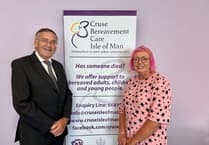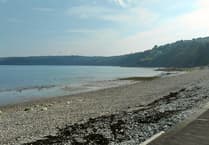Academics, students, members of community groups and Manx heritage organisations will speak at a conference next week.
The event on language and society in the Isle of Man will be held at the iMuseum, Kingswood Grove, Douglas, on May 11 to 13.
The main focus of the conference will be on Manx Gaelic, but all talks will be delivered in English.
Other topics will include Manx English; Café Lingo’s efforts to teach English to newcomers to the island; the teaching of Welsh to refugees in Wales; the revival of Cornish; and the effect of austerity on the Gaelic languages of Ireland and Scotland.
There will be talks about a number of history topics.
They will include the role of St Maughold, the patron saint of the island; stories of saints in the medieval Irish Sea world; the origin of Manx surnames in light of the Manx Y-DNA Study; the impact of the Manx language on the Reformation; circulation of print in the Isle of Man in the 18th century; discourses around ‘modernity’ in 19th-century debates about the Manx language; and the role of Sophia Morrison and the Peel Manx Class in the early years of the Manx revival.
Speakers will include two leading academics, Professor Barry Lewis from the Dublin Institute for Advanced Studies, a scholar of the medieval Celtic languages and literatures, and Professor Julia Sallabank, from SOAS, University of London, who has studied language revitalisation across the globe, including the case of Manx.
In addition, there will be talks from Nicola Tooms of Manx National Heritage and Rob Teare, the government’s Manx language officer.
The event will also see the official launch of the Manx Language Research Group.
This new body was established in 2022 under the auspices of Yn Cheshaght Ghailckagh (the Manx Language Society) to promote research on Manx and to increase both public and academic engagement with the language.
The Manx Language Research Group also oversees the Manx Corpus, a volunteer-led project to create a fully searchable, bilingual online repository of Manx texts dating from the 17th century to the present day. The Corpus now contains about 1.7 million words across almost 600 texts.
Dr Christopher Lewin, the conference chair and an Irish Research Council-funded postdoctoral researcher at the University of Galway, said: ‘This is a fantastic opportunity for scholars and students to visit the island, and for locals to hear about a wide range of exciting research on language in the Isle of Man and further afield.’
Erin McNulty, a doctoral researcher at the University of Glasgow and member of the Manx Language Research Group, said: ‘I’m very much looking forward to speaking at an academic conference with such a strong focus on the Manx language.
‘It’s really exciting to see how the field is growing and to make connections with other academics working in language communities that are in a similar position to us, like Cornwall and Jersey.’
In addition to the conference itself, attendees and the wider public are invited to a free concert with local trad duo and Manx speakers Elizabeth Davidson-Blythe and Daniel Quayle on Friday, May 12, from 9.30pm at 1886 (Regent Street, Douglas, upstairs in the function room), and an informal music and Manx session at the Whitehouse, Peel, on Saturday, May 13, from 8.30pm.
The event is organised by the University of Galway in Ireland and Manx National Heritage, with support from Culture Vannin.
The conference will be free to attend, but prior registration is recommended: https://www.eventbrite.co.uk/e/language-and-society-in-the-isle-of-man-tickets-621685356637
Booking for an optional buffet meal costing £20 on Friday, May 12, is required by May 2.




.png?width=209&height=140&crop=209:145,smart&quality=75)
Comments
This article has no comments yet. Be the first to leave a comment.